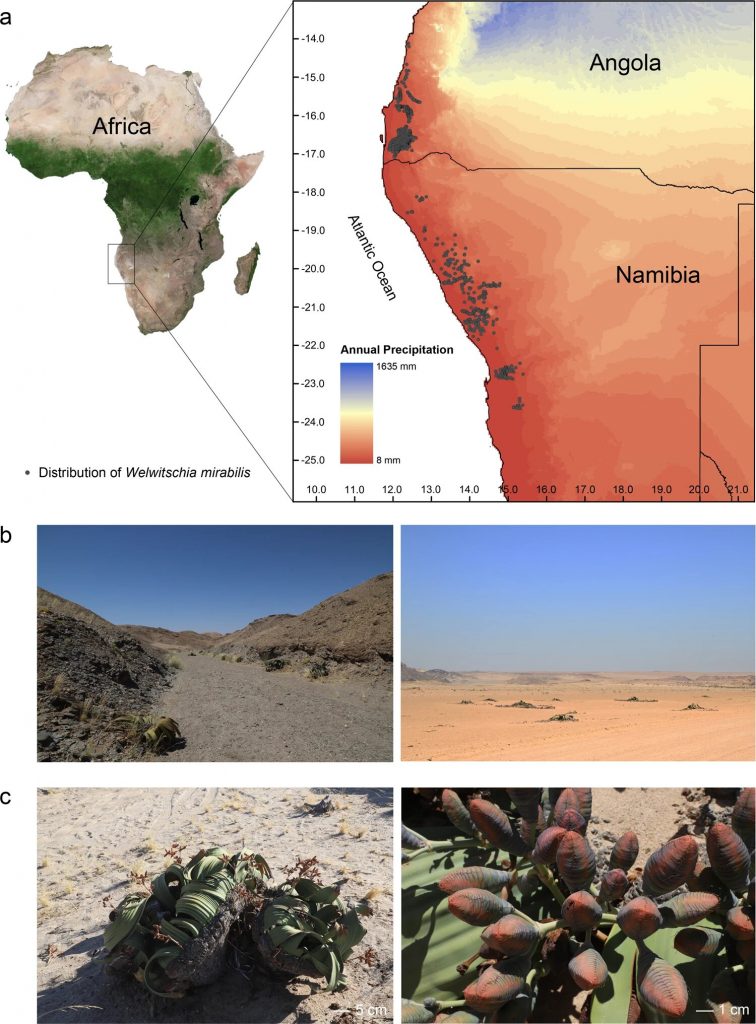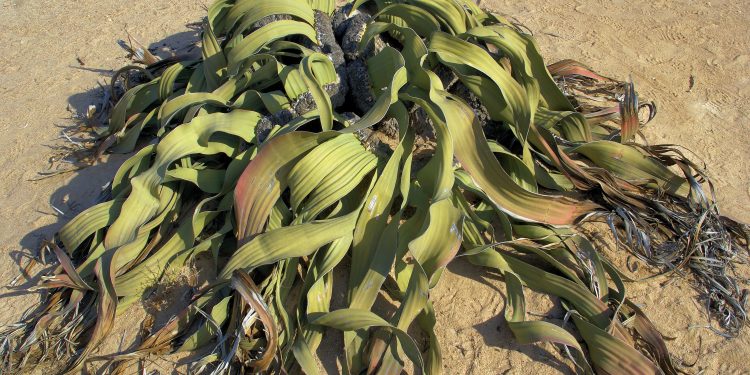An international team of scientists discovered that the African Welwitschia plant can live for more than a thousand years thanks to the disposal of genetic debris and a special way of growing leaves. They hope that the genetic secrets of Welwitschia will be useful in agriculture – in a changing climate, it is important to create plants that can survive in an arid and nutrient-poor environment.
Everything you need to know about the Welwitschia plant
Welwitschia is a fascinating plant that has not only adapted to survive in one of the harshest places on planet Earth – the Namib Desert but can also survive for thousands of years.
Continuous development and adaptation
The difference between the Welwitschia plant and most other plants is its ability to continue developing and adapting. While most species stop developing once fully grown, Welwitschia is the opposite. Curiously, it actually dies once it stops growing.
More than 2,000 years old
In previous studies, scientists found that a single specimen of Welwitschia is more than 2,000 years old. Some botanists believe that some specimens might also be more than 3,000 years old. For this incredible period, the plants do not change a single leaf; they have only two massive leaves during their entire lifetime.
Two leaves
Yes, the winds and sandstorms normally cut the two plants longitudinally, in many stripes, which causes the impression of many leaves. However, botanists’ studies have proven that each plant has only two leaves.

Endemic plant
Welwitschia is an endemic plant – it can be found only in the Namib Desert. As most books say, Friedrich Welwitsch found it here, not in the Kalahari. Namib is a strange desert. Precipitation is low – about 25 – 50 mm per year, but the humidity is high, as thick fog invades from the ocean.
New discoveries
The journal Nature Communications published a study where scientists talked about some of the secrets of genetics that determine the unique form of Velvichia, its longevity, and its resistance to environmental conditions. Specifically, researchers have discovered certain genetics that controls cell growth and metabolism. They found that the reason behind the impressive adaptation skills of the Welwitschia plant was genome changes occurring for over tenths of millions of years.
Welwitschia’s genome reveals everything
Scientists claim the genome shows the plant in an arid and nutrient-poor environment. Also, the history of its genome is quite consistent with the history of the desert, which means that it has been adapting to environmental changes over and over.
Sudden changes about 86 million years ago
Scientists also found that Welwitschia’s genome underwent sudden changes about 86 million years ago during an extreme drought in the region. This is when an “error” occurred in the cell division – the plant’s genome doubled.
Energy consumption
Although a duplicated gene typically lacks its original functions and has completely new ones, there is also a downside to this “evolution.” Logically, a larger genome also means higher energy consumption which would typically be fatal in such harsh environments.
Adaptability
Welwitschia, however, found another way to suppress these high-cost requirements. Since a large percentage of its “new” genome happened to be self-replicating “junk”, the plant managed to suppress the unnecessary DNA sequences. The process is known as DNA methylation, and because of it, Welwitschia can survive in the Namib Desert.
Sources:
• The Independent. (2021, August 4). A plant that ‘cannot die’ reveals its genetic secrets.
• Sima, R. (2021, July 31). A plant that ‘cannot die’ reveals its genetic secrets. The New York Times.
• Wan, T., Liu, Z., Leitch, I. J., Xin, H., Maggs-Kölling, G., Gong, Y., Li, Z., Marais, E., Liao, Y., Dai, C., Liu, F., Wu, Q., Song, C., Zhou, Y., Huang, W., Jiang, K., Wang, Q., Yang, Y., Zhong, Z., … Wang, Q. (2021, July 12). The Welwitschia Genome reveals a Unique Biology underpinning extreme longevity in deserts. Nature News.











